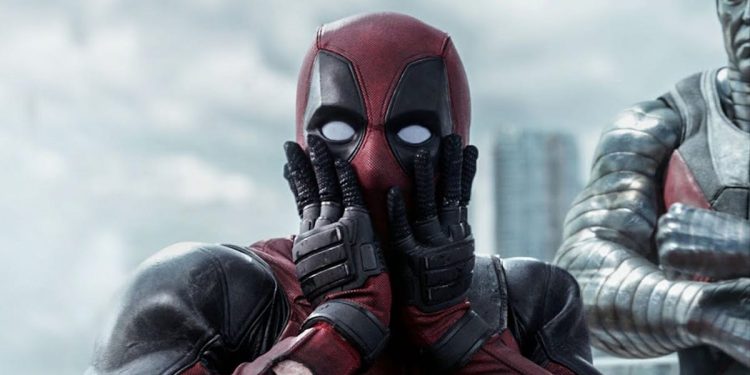- Tim Miller was paid $225,000 for directing the first “Deadpool” movie in 2016.
- The superhero movie raked in $782 million at the box office.
- It launched a huge franchise, which is worth $2.9 billion after 2024’s “Deadpool & Wolverine.”
Back in 2016 Tim Miller directed “Deadpool”, launching a lucrative global superhero franchise — work he said earned him a relatively small $225,000.
The violent, R-rated movies star Ryan Reynolds as the titular foul-mouthed superhero. According to TheNumbers.com, the franchise is now worth over $2.9 billion after the riotous success of the third film, “Deadpool & Wolverine.”
Collider reported that Miller discussed his salary during a recent panel at the CCXP convention in Brazil, which took place from December 5-8.
He said: “You guys might not know, but it’s not really a profitable thing to be a first-time director in Hollywood, and I’ll tell you exactly. I got $225,000 to direct ‘Deadpool.’ I know it sounds like a lot of money, but for two years of work, that’s not a ton of money.”
Miller said he was grateful for the opportunity, but joked that at the time, his agent told him: “‘Dude, you make more on an episode of ‘The Walking Dead!'”
The director went on to say that there’s a misconception about typical salaries in Hollywood. “I think a lot of people think that everyone’s getting paid millions and millions in Hollywood. It’s just not the case, not always,” he said.
The minimum salary for members of the Director’s Guild of America in 2024 is $237,670 for a guaranteed shoot of 10 weeks.
In July 2024, Reynolds said he “let go of getting paid” for “Deadpool” because it was a passion project for him and he wanted to see it on the big screen. The film was a risk because of its violence and profanity, which meant that younger fans and families couldn’t go see it.
Regardless, it still made $782 million worldwide, according to Box Office Mojo. For Miller, that success overrides the small salary.
He said: “You know what I feel? Nothing but pride. I mean, I feel like every time I walk down the aisles out there on the floor of CCXP and I see all these Deadpool figurines, I think they wouldn’t be here if we hadn’t made that film. And I feel uniquely fortunate that I could be part of it.”
Miller’s work on “Deadpool” propelled his career forward. He directed 2019’s “Terminator: Dark Fate” as well as episodes of Netflix’s “Love, Death, and Robots.” He also created the animated anthology video game series, “Secret Level,” for Amazon Prime Video.
He also joked that he should’ve negotiated a merchandise deal into his contract.
“Then my second thought is, I wish my director deals had a piece of the merchandising so that I could get some money from all of that.”
Rob Mitchell, the director of theatrical insights at Gower Street Analytics, told Business Insider that backend and merchandise deals allow actors and directors to take on “riskier” projects that earn more if the project is successful.
He said: “The most famous one is Jack Nicholson’s deal on the original ‘Batman’ film that he got a huge payday out of. He took a salary cut, but took a backend and made an absolute fortune of it. That isn’t uncommon, that would happen with big stars in riskier projects.”
- Tim Miller was paid $225,000 for directing the first “Deadpool” movie in 2016.
- The superhero movie raked in $782 million at the box office.
- It launched a huge franchise, which is worth $2.9 billion after 2024’s “Deadpool & Wolverine.”
Back in 2016 Tim Miller directed “Deadpool”, launching a lucrative global superhero franchise — work he said earned him a relatively small $225,000.
The violent, R-rated movies star Ryan Reynolds as the titular foul-mouthed superhero. According to TheNumbers.com, the franchise is now worth over $2.9 billion after the riotous success of the third film, “Deadpool & Wolverine.”
Collider reported that Miller discussed his salary during a recent panel at the CCXP convention in Brazil, which took place from December 5-8.
He said: “You guys might not know, but it’s not really a profitable thing to be a first-time director in Hollywood, and I’ll tell you exactly. I got $225,000 to direct ‘Deadpool.’ I know it sounds like a lot of money, but for two years of work, that’s not a ton of money.”
Miller said he was grateful for the opportunity, but joked that at the time, his agent told him: “‘Dude, you make more on an episode of ‘The Walking Dead!'”
The director went on to say that there’s a misconception about typical salaries in Hollywood. “I think a lot of people think that everyone’s getting paid millions and millions in Hollywood. It’s just not the case, not always,” he said.
The minimum salary for members of the Director’s Guild of America in 2024 is $237,670 for a guaranteed shoot of 10 weeks.
In July 2024, Reynolds said he “let go of getting paid” for “Deadpool” because it was a passion project for him and he wanted to see it on the big screen. The film was a risk because of its violence and profanity, which meant that younger fans and families couldn’t go see it.
Regardless, it still made $782 million worldwide, according to Box Office Mojo. For Miller, that success overrides the small salary.
He said: “You know what I feel? Nothing but pride. I mean, I feel like every time I walk down the aisles out there on the floor of CCXP and I see all these Deadpool figurines, I think they wouldn’t be here if we hadn’t made that film. And I feel uniquely fortunate that I could be part of it.”
Miller’s work on “Deadpool” propelled his career forward. He directed 2019’s “Terminator: Dark Fate” as well as episodes of Netflix’s “Love, Death, and Robots.” He also created the animated anthology video game series, “Secret Level,” for Amazon Prime Video.
He also joked that he should’ve negotiated a merchandise deal into his contract.
“Then my second thought is, I wish my director deals had a piece of the merchandising so that I could get some money from all of that.”
Rob Mitchell, the director of theatrical insights at Gower Street Analytics, told Business Insider that backend and merchandise deals allow actors and directors to take on “riskier” projects that earn more if the project is successful.
He said: “The most famous one is Jack Nicholson’s deal on the original ‘Batman’ film that he got a huge payday out of. He took a salary cut, but took a backend and made an absolute fortune of it. That isn’t uncommon, that would happen with big stars in riskier projects.”









